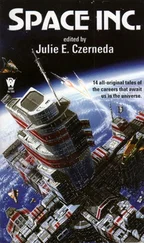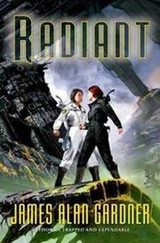* * *
The doctor looked up from the records on his desk as Cap entered his office. “Master Rigger Hardesty? I thought you’d like to know that your lab results are in. How do you feel?”
Cap answered calmly. “Well, pretty much okay now that I quit barfing. I mean I think I might have a little temperature, and feel a bit tired, but I’ve felt worse. I’ll get over it.”
The doctor was nodding his head. “Well, that is consistent with your lymphocyte count and about what I expected.” The doctor made a note on the record before him, the silence in the room stretching as his stylus tapped data into the chart. Finally he sighed and looked into Cap’s expectant eyes. He quietly said, “I’m afraid I have some bad news for you. Your lymphocyte count was really low. It was just above fifty percent. Do you know what that means?”
Cap’s mind went blank, then seeing the doctor was waiting for a response said, “Yeah, I know what it means. It means I’ve got anywhere from a couple of hours to a week of feeling normal, then my body parts start falling off. How much radiation did we get?”
The doctor looked at the chart. “Not enough to make body parts fall off, at least. There’s actually no way to tell for sure exactly how much. It was significant. Apprentice Rigger Harley got the most, I believe.”
Cap stiffened in surprise. “How could he get the most? We were standing side by side! Besides, I have four-plus years of accumulated dose.”
The doctor shuffled the records and read for a second. “As of right now he’s almost caught up. We wondered the same thing, so we checked it out. A careful analysis of the sensors indicated that a heavy dose covered your location from the shadowed side. The preliminary incident report suggests that as we took in the sails, something—a gust, a surge of photons and charged particulate matter, maybe even a filament plug in the solar wind—caused a sail to dimple. In short, it acted like a dish and focused on your area. Rigger Harley must have been on the side the beam came in from. It’s the only explanation that works.”
Cap’s face became wary as he asked, “Are we treatable?”
The doctor nodded, “I believe so.”
“Believe so? Can’t you do better than that?” Cap demanded.
The doctor responded quickly. “I’m sorry, no. In a week, as soon as the storm is over and it’s safe to do so without getting you additional exposure, we’ll ship you both to one of the orbital treatment centers and get things rolling. While you’re up here, we’ll want to see you at least once a day at a consistent time. Meanwhile, you just take it easy and rest. I’m taking you off the duty roster. If your symptoms change, call us. We’ll do all we can for you, but we are not set up to do the major work in these cases. We can, however, make it somewhat easier for you, you know.” The doctor’s eyes had drifted down to the desk as he spoke. Now he made direct eye contact. “I’m terribly sorry. I do wish there was something more I could do.”
Cap nodded in understanding and resolved to put a good face on the situation. “That’s okay, Doc. It’s not your fault.” He rose slowly to his feet. “See you tomorrow, then. Thanks,” Cap said as he stuck out his hand and shook the doctor’s. Then he turned and left the office.
Harley was in the tiny waiting room, waiting for his turn. In a small voice he asked, “Well, Cap. We gonna live?”
Cap smiled grimly and said, “At least until we die, Ace.” Cap could see that the situation was finally becoming real to the kid. He sat down and watched Harley go into the office and close the door. A few minutes later he came out with a numb expression on his face and they both left the office and headed for the inner spaces where their rooms were and where there was less spin-gravity.
Feeling that something needed to be said, Cap finally spoke. “Well, Ace, looks like we’re going to be grounded.”
Harley cleared his throat before he said, “Yeah. Short career, huh? They said we were probably treatable.” Harley looked searchingly at Cap. “What do you think? I mean you’ve seen this sort of thing before. What are our chances?”
Cap turned and looked full at him and lifted an eyebrow. “Of what?”
“Of living. Of surviving this?” Harley’s eyes drilled into Cap’s.
Cap answered as he made the transition from light on his feet to weightless and began pulling himself along the passageway by grabbing the rings on the bulkheads. “Like I said before, Ace. We’ll live until we die. A man can’t ask for more man that, now, can he?”
As Harley less gracefully followed Cap along the grabrings, he thought about what Cap said and finally understood what Cap had been telling him since their first conversation. It was an attitude, a necessary attitude for those who worked under dangerous conditions. Soldiers, high steel walkers, deep-sea construction workers, space workers were all subject to it because they worked in unforgiving environments. “You live until you die.” He liked it. It struck him as funny that he had no sooner learned it than he wouldn’t need it any more.
* * *
Michael E. Picray was born in Des Moines, Iowa, and left the state at the first reasonable opportunity. A graduate of Northwest Missouri State University (‘91) with a major in accounting, he now resides in Missouri with his wife and such children who have not yet lost all patience with him and moved out. In “Riggers,” he combines firsthand knowledge of the blue-collar world with his experience as a U.S. Navy veteran to provide a view of working in space from near the bottom of the human food chain. “If we could send humanity into space without sending people, it would he perfect.” Mike hopes you enjoy the story and thanks Julie E. Czerneda, the editor, for putting up with him along the way.
Suspended Lives
by Alison Sinclair
GENERAL SURGEON
The IMS series of Medical Space Stations provides medical services to all orbital facilities and traffic, including government-run, privately-run, and nonprofit freehabs. Currently, each station serves over 15,000 personnel. To provide this level of service, the IMS stations are fully-functioning hospitals, with telesurgery and other specialists available at all times.
Immediate openings exist for three full-time telesurgeons. These positions have a mixed cycle of shifts, including the required three-month time Earthside.
Qualifications: As per IMS regulations, including a specialization in space-related trauma.
Personal: Must pass all physical and psychological tests required for prolonged work in space, including tolerance to zero G and a genome screen for susceptibility to radiation-induced cancer.
Responsibilities: As per IMS policies, procedures, and directives.
Compensation: Based on the existing IMS grid, which includes substantial incentives and benefits as well as insurance coverage.
Please apply in confidence to: IMS Hospital Services, Attention: Human Resources: File #5672298A-06 Only candidates to be interviewed will receive a reply.
Five facets of the icosahedral doctor’s lounge look up, or down, if you will, on Earth. The dayshift surgeon, Ygevney Barishenkov, slouches beneath the window, rumpled and bleached in the Earth light. I’d think he’d had a bad shift, but that Y’ always looks as though he hasn’t grown to fit his skin, never mind his scrubs.
I attach my coffee-sac to my belt and monkey along the perimeter struts in the approved manner. No microgravity aerobatics in the doctor’s lounge.
“I accepted two transfers from Franklin, Artemis? construction crew,” Y’ says, by way of evening greeting. “Both stable.”
Читать дальше












